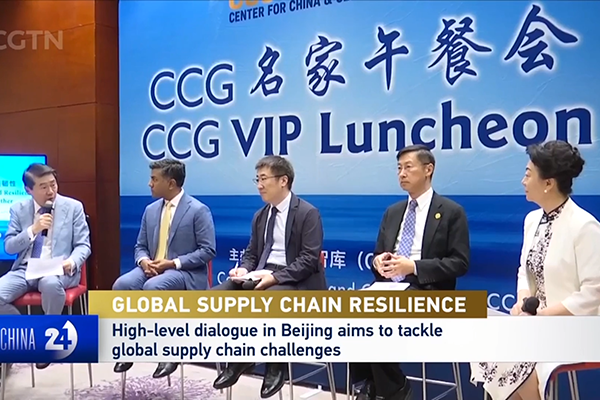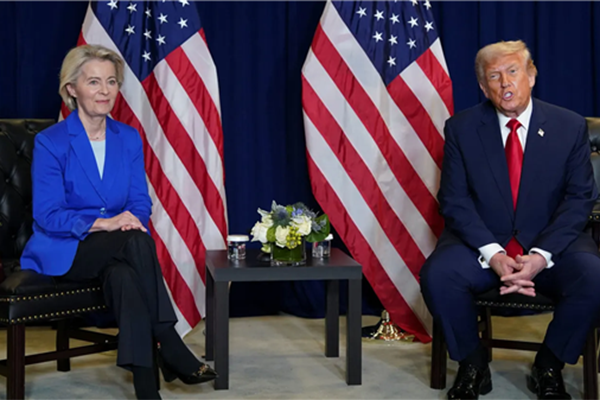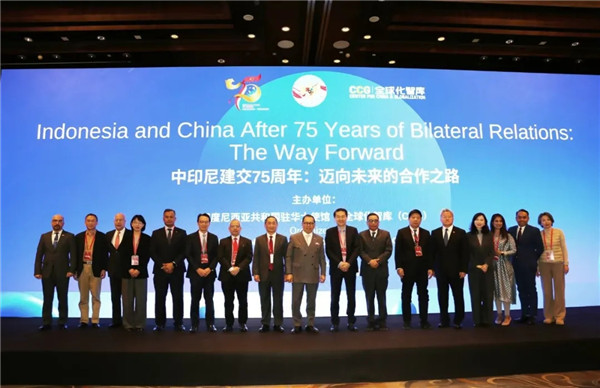CGTN | Global Supply Chain Resilience: High-level dialogue in Beijing aims to tackle global supply chain challenges
July 25 , 2025
A high-level luncheon has been held in Beijing, bringing together experts and international diplomats to share their insights on the current state of global industrial and supply chains. Cao Chufeng has more.
Under the theme “Bolstering Trade and Investment to Build Resilient Industrial and Supply Chains Together,” the luncheon was hosted by the Center for China & Globalization on Thursday. It brought together dozens of foreign diplomats, global business leaders, scholars, and representatives from international organizations to discuss various topics featuring global industrial and supply chains.
HENRY HUIYAO WANG President, Center for China and Globalization “China is the strongest supply chain country, and they have the responsibility to help sustain the safety of the global supply chain. So I think this is really the meaning of this conference, to get everybody’s idea on how we can work together to avoid supply chain destabilizing.”
From the aftermath of COVID-19 to rising protectionism in some countries, participants shared their insights on the growing risks to global supply chains.
ANDRE HASPELS Ambassador of the Netherlands to China “All these restrictive policies do not help to flourish the global supply chains, so I think we should take away the sensitivities, and promote the global supply chain as much as possible.”
Despite mounting challenges, a recent report by the China Council for the Promotion of International Trade suggests that global supply chains continue to trend in a positive direction.
ZHAO PING President, Academy of China Council for the Promotion of International Trade “Global supply chains are moving towards a more efficient and dynamic direction. This once again shows that economic globalization is the general trend of the times, and the common desire of the people around the world.”
CAO CHUFENG Beijing “Organizers and speakers both agree: in the face of growing global supply chain disruptions, trade and investment cooperation remains a practical and essential solution.”






